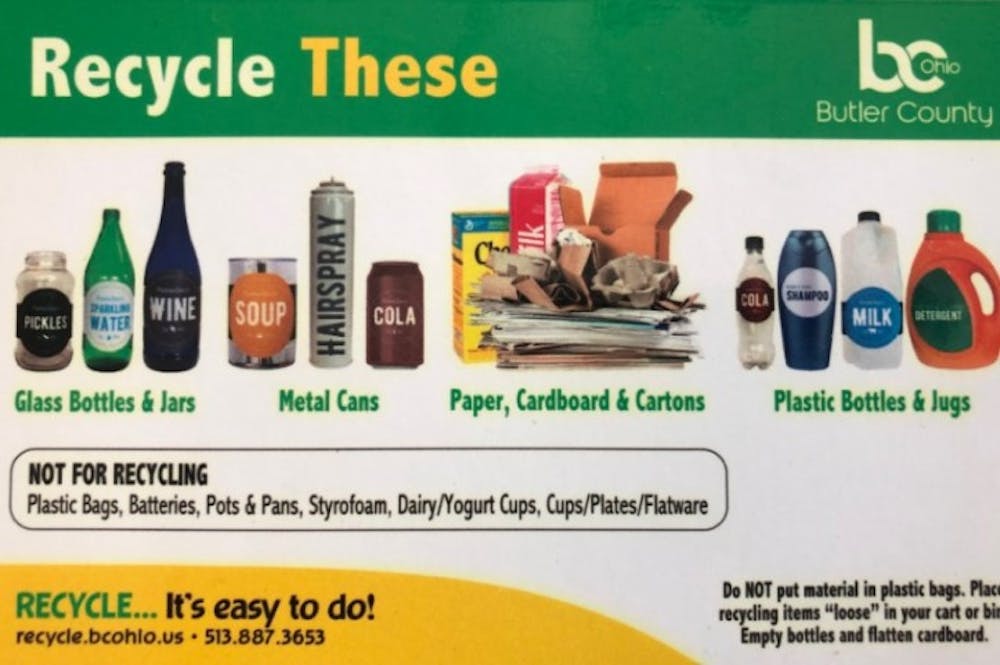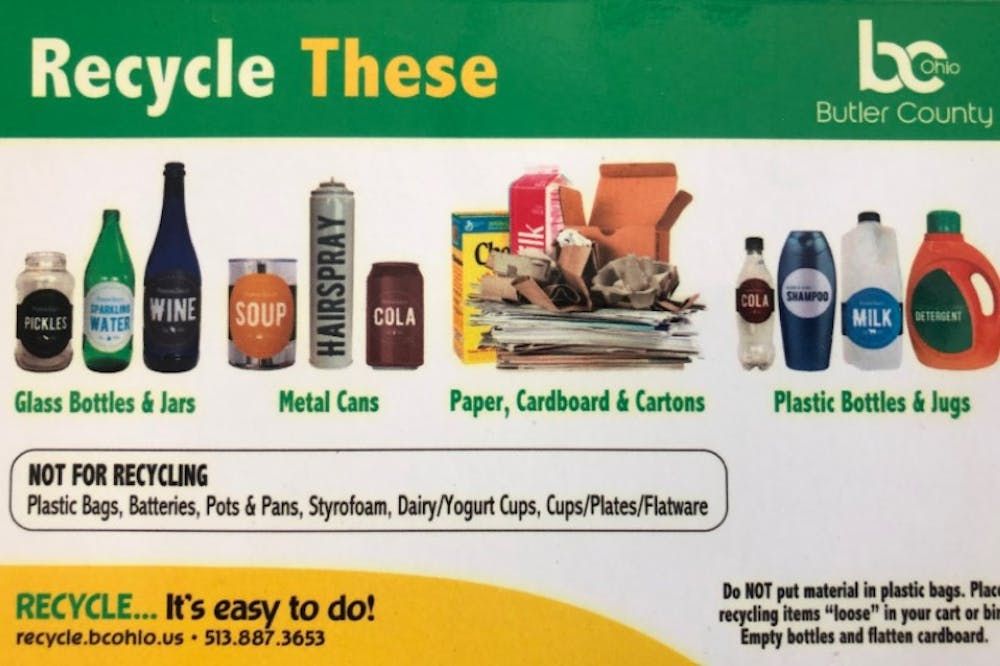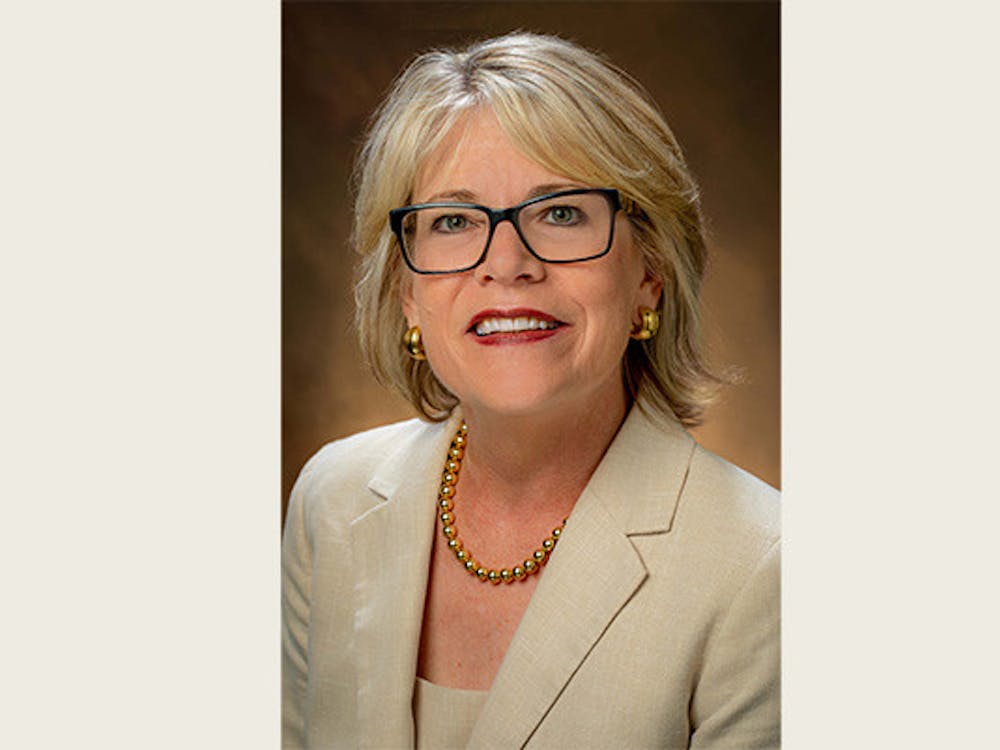By: Celine Thormann
When moving into college, whether you live off campus or in a dorm, something that will shock you is the sheer amount of trash produced by students and their families. Piles and piles of plastic, cardboard and Styrofoam crowd trash rooms and front porches all around town. In dorms, there are often helpful infographics in the trash rooms that help students figure out what can and cannot be recycled. However, I live off campus, and after being overwhelmed by how crowded my trash bags were, I decided to check out the recycling services Butler County offers.
I was not optimistic at first, since I was only provided with a normal sized trash can and a small red box with no lid for recycling. If people are interested in a larger bin for recycling, they must call the City and order one for an increased fee. My landlords helpfully provided a refrigerator magnet with general categories of what can and cannot be recycled, pictured below, but I had some specific questions and decided to call the number on the magnet and see what I could find out.

After one extraordinarily helpful phone call with a very kind employee, here is what I learned about recycling in Butler County.
- All cardboard, corrugated or not, is accepted. This was a pleasant surprise, and certainly made me feel better about the number of boxes that I saw on the curb while driving around town.
- Only plastics labeled with ‘1’ and ‘2’ plastics are accepted. A helpful tip the representative gave me for determining if a plastic bottle was recyclable was to look at the size of the bottom and the size of the opening. If the opening is smaller than the bottom, odds are it is made of number 1 or number 2 plastic.
- When recycling a plastic bottle, it is okay to reattach the cap. Ideally, you should flatten the bottle as much as you can, but once it is flattened, it can be recycled with the cap on.
- Items need to be loose in the bins, rather than contained in a trash bag within the bin. This is because the trash bags cannot be recycled.
- Solo cups and Styrofoam are never accepted, so it is best to just avoid those items entirely.
After having my initial questions answered, I then did some research into how to recycle specialty items.
Plastic bags: Going grocery shopping often means that a household will accumulate a lot of plastic bags. These unfortunately cannot be recycled from home, but if you save them and return them to Kroger, there is a specialty recycling bin in the entryway where they can be sustainably disposed of.
Batteries: Luckily for us, there are several containers for used batteries around campus, including in Armstrong Student Center and Upham Hall.
Styrofoam: Sadly, this one is a little trickier. Styrofoam is often used to package items that students will get for their dorms, so it is a shame that it is not easily recycled. A resource that I used to look into disposal is this website, which allows you to search up recycling centers near you that take foam. The closest ones to us in Oxford are two centers in Cincinnati. The first, located at 4784 Devitt Drive, only takes loose fill items like packing peanuts. The second, which is actually in Mason, Ohio, is located at 123 E Main Street and is drop-off transport only. My advice? Just avoid Styrofoam when you can. Oxford recycling accepts packaging cartons, and those will keep your things just as safe as packing peanuts.
These guidelines can change depending on which trash service you have, but they should serve as a good place to start when trying to be sustainable in college, especially where we are in Oxford, Ohio.
Enjoy what you're reading?
Signup for our newsletter
Photo courtesy of Celine Thormann




